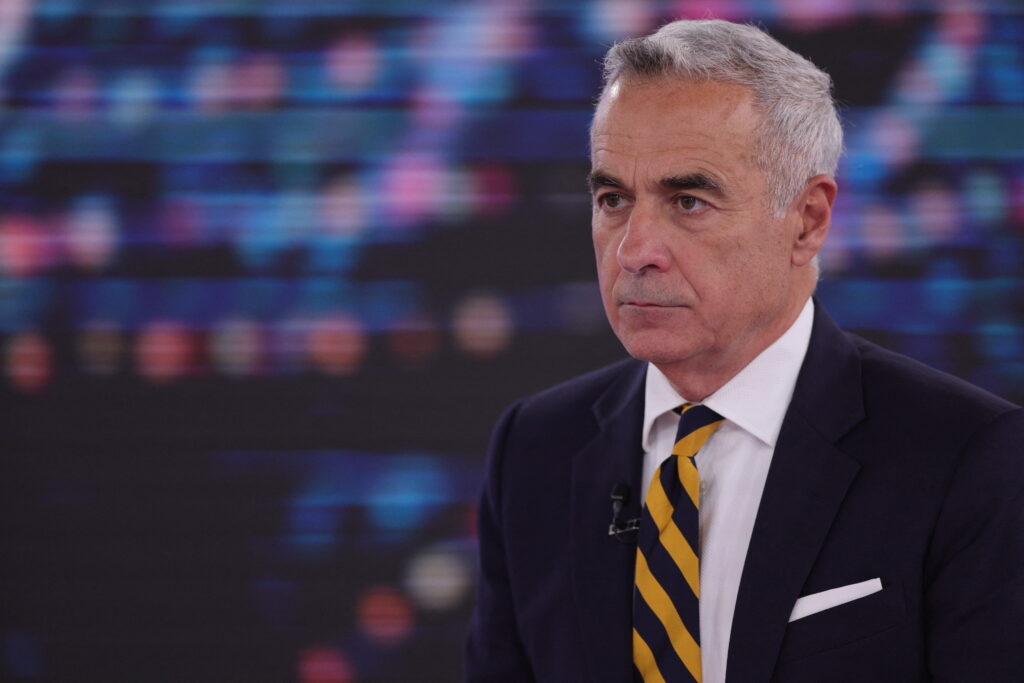Brussels – The European Union is somewhere between a mediator and a judge in the case involving the online platform TikTok and the elections in Romania. Following “various irregularities” raised by Romanian authorities after the elections on Sunday, November 24–and ahead of the runoff scheduled for December 8–the European Commission today (November 29) convened a roundtable discussion with representatives of digital platforms, including TikTok, and representatives of the country, as part of the EU regulation on digital services (DSA).
“We did this before the elections in Slovakia, the elections in Luxembourg, and the European elections,” a European Commission spokesperson said. “This is a common practice we tend to do within the DSA. Free and fair elections are at the heart of our democracies and the cornerstone” of the EU Digital Services Regulation. However, what is happening in Bucharest is new, with the Romanian Supreme Council of National Defense denouncing the “massive exposure” of one of the candidates “based on preferential treatment by TikTok.”
The first round of elections for a new head of state in Romania caused a stir. The surprise victory of the independent, anti-establishment candidate Călin Georgescu, who is ahead of his liberal challenger Elena Lasconi, has raised many questions both at the national and European levels. It’s not just that Georgescu is notably pro-Russian and anti-NATO, but what is also sparking debate is the fact that his support is closely related to the campaign he ran using the TikTok platform. So, while Brussels wants to see this through, the Romanian Constitutional Court has already ordered a recount of the votes, accepting the appeal filed by two other candidates running in the November 24 vote.
The (mild) rules of TikTok
TikTok, like other large social platforms, is regulated by the DSA, which is responsible for ensuring safety in using online services, particularly if they impact the democratic life of a country. Theoretically, the guidelines of the Chinese company guarantee a check on misinformation that can cause “significant harm to individuals or society, regardless of intent.” They also say that there are external partners who assess the accuracy of information and prevent the spread of fake news.
TikTok’s policy on elections is not to allow paid promotions, political advertising, or fundraising by members of political parties to avoid “interference with voters” and if the content may “hinder a voter’s ability to make an informed decision.”
In October, the European Commission requested information from the platform under the Digital Services Regulation, asking for clarification on content recommendation systems to protect the platform’s users from harmful information. Specifically, it had requested TikTok to clarify to the EU executive what measures it was adopting to avoid the manipulation of information and “mitigate the risks related to elections, pluralism of media and civic discourse, which may be amplified by certain recommender systems.”
The echo of misinformation resonates in Romania
The risk was clear from the outset, even before Romania faced the problem of the widespread use of social media for election campaigns.

According to the Bulgarian Social Media Observatory (which also covers Romania) and the European Digital Media Observatory, Georgescu never hid his views. In general, the virtually unknown Georgescu gained the electorate’s support, first and foremost, because he represented an alternative to traditional politics and carried a consistent anti-establishment message.
The problem was that polls predicted a percentage of support that was half the actual results, raising concerns about potential external influences, such as Russian interference. It was also unconvincing not to know the candidate’s budget or the funding sources, particularly for advertising.
TikTok was the perfect sounding board to make content go viral, with a peak of followers during the presidential campaign. The platform, for its part, said that it has complied with its guidelines and removed 88 advertisements related to non-regular political content. Considering that the removed ads had over three million views and the economic loss to the campaign was minimal, we can conclude that these ads still did their job.
The proposed content demonstrates the glaring shortcomings in TikTok’s online information-checking mechanisms. A classic phenomenon on social media is the echo chamber effect repeatedly proposing content aligned with previously viewed and liked content. As they say, repetita iuvant, and in election campaigns, repeating simple messages, such as those on social, works perfectly.
Even in Romania, which saw closed virtual environments in which Georgescu’s ideas were the only ones present and valid, this helped to reinforce his message. The lack of alternative viewpoints made it easier to convince voters who were already aligned and to sway the undecided.
From the European perspective, this should raise an alarm. While the Romanian media is already speaking of maxi-fine for the platform, with no official word from Brussels yet, a case has clearly emerged concerning the relationship between social media and democracy. It is even more concerning in light of the December 8 runoff, where there is a real risk of electing a candidate who stands against all European values, with significant (indirect) help from TikTok.
English version by the Translation Service of Withub







